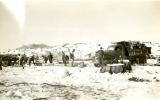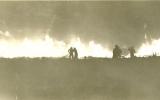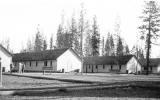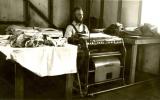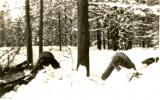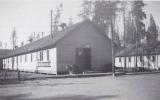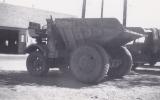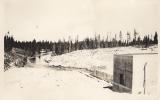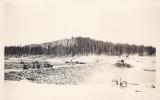CPS Unit Number 060-01
Camp: 60
Unit ID: 1
Operating agency: MCC
Opened: 12 1942
Closed: 1 1944
Workers
Total number of workers who worked in this camp: 187
-
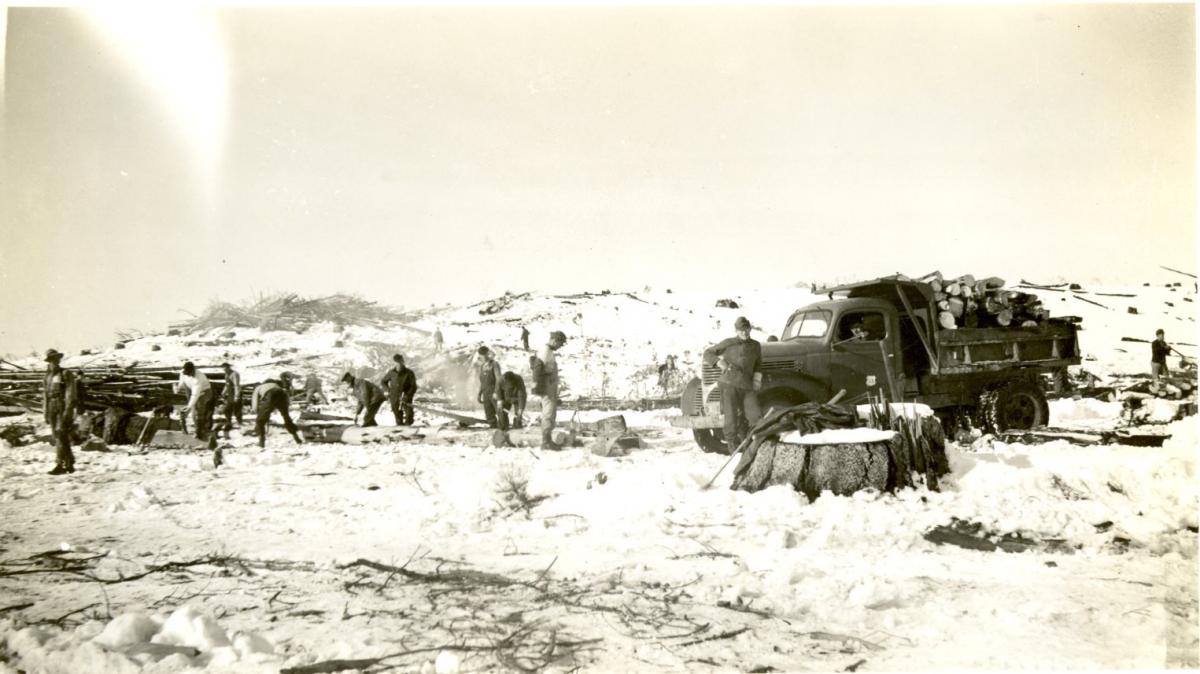 CPS Camp No. 60Civilian Public Service camp 60, Lapine, Oregon. Cutting and sawing wood.Box 2, Folder 1. MCC Photographs, Civilian Public Service, 1941-1947. IX-13-2.2. Mennonite Central Committee Photo Archive
CPS Camp No. 60Civilian Public Service camp 60, Lapine, Oregon. Cutting and sawing wood.Box 2, Folder 1. MCC Photographs, Civilian Public Service, 1941-1947. IX-13-2.2. Mennonite Central Committee Photo Archive -
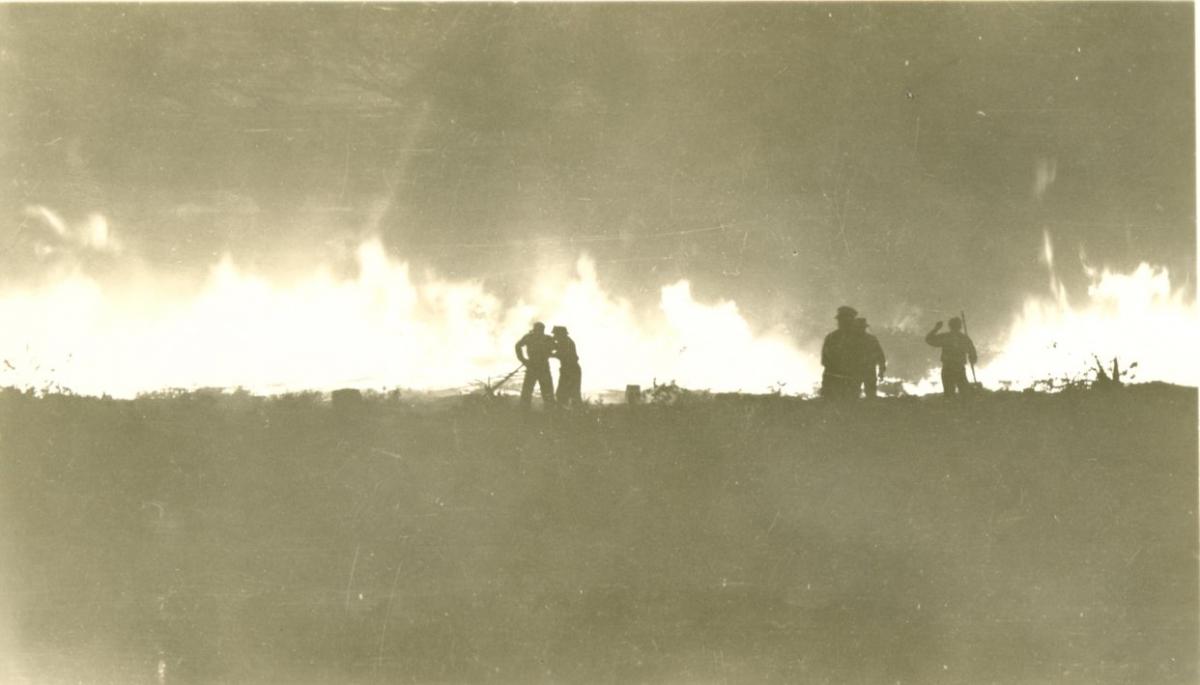 CPS Camp No. 60, Lapine, OregonCivilian Public Service camp 60, Lapine, Oregon. Fighting fire.Box 2, Folder 1. MCC Photographs, Civilian Public Service, 1941-1947. IX-13-2.2. Mennonite Central Committee Photo Archive
CPS Camp No. 60, Lapine, OregonCivilian Public Service camp 60, Lapine, Oregon. Fighting fire.Box 2, Folder 1. MCC Photographs, Civilian Public Service, 1941-1947. IX-13-2.2. Mennonite Central Committee Photo Archive -
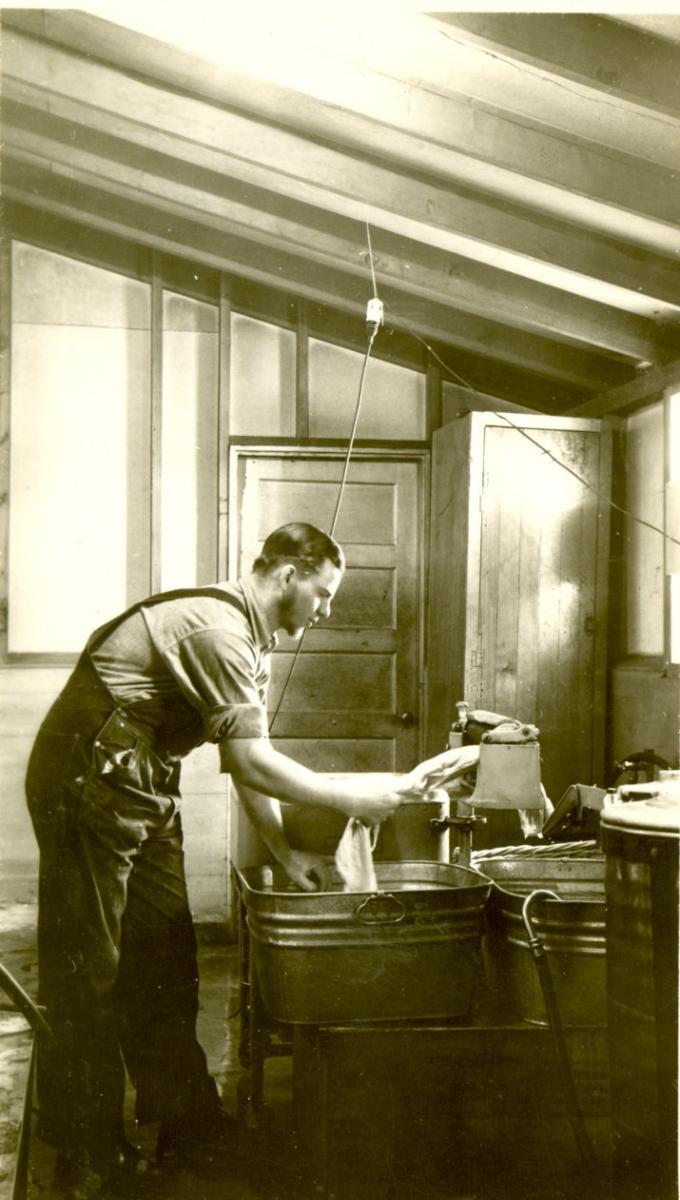 CPS Camp No. 60, Lapine, OregonCivilian Public Service camp 60, Lapine, Oregon. Assignee Becker doing camp laundry.Box 2, Folder 1. MCC Photographs, Civilian Public Service, 1941-1947. IX-13-2.2. Mennonite Central Committee Photo Archive
CPS Camp No. 60, Lapine, OregonCivilian Public Service camp 60, Lapine, Oregon. Assignee Becker doing camp laundry.Box 2, Folder 1. MCC Photographs, Civilian Public Service, 1941-1947. IX-13-2.2. Mennonite Central Committee Photo Archive -
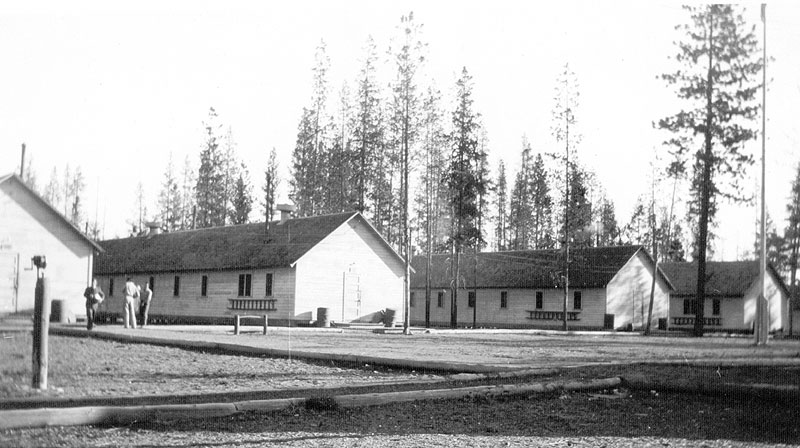 CPS Camp No. 60CPS Camp 60, Lapine, Oregon. 1943.From the private collection of Clarence Leichty under the Creative Commons Attribution 2.5 License
CPS Camp No. 60CPS Camp 60, Lapine, Oregon. 1943.From the private collection of Clarence Leichty under the Creative Commons Attribution 2.5 License -
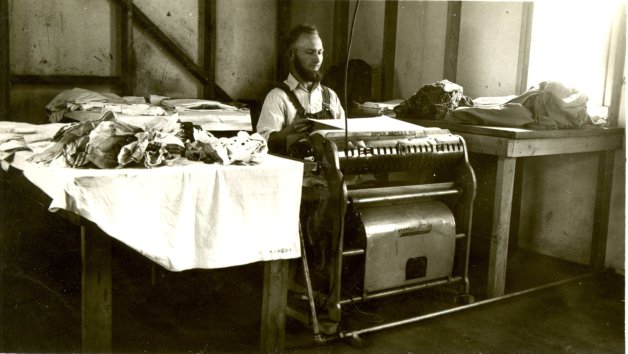 CPS Camp No. 60Civilian Public Service camp 60, Lapine, Oregon. Assignee Koehn operating Mangle.Box 2, Folder 1. MCC Photographs, Civilian Public Service, 1941-1947. IX-13-2.2. Mennonite Central Committee Photo Archive
CPS Camp No. 60Civilian Public Service camp 60, Lapine, Oregon. Assignee Koehn operating Mangle.Box 2, Folder 1. MCC Photographs, Civilian Public Service, 1941-1947. IX-13-2.2. Mennonite Central Committee Photo Archive -
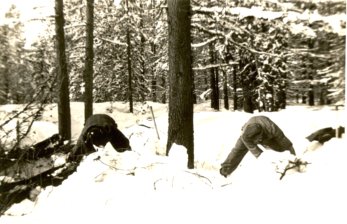 CPS Camp No. 60Civilian Public Service camp 60, Lapine, Oregon. Felling trees with saw and axe. Project work at C.P.S. 60.Box 2, Folder 1. MCC Photographs, Civilian Public Service, 1941-1947. IX-13-2.2. Mennonite Central Committee Photo Archive
CPS Camp No. 60Civilian Public Service camp 60, Lapine, Oregon. Felling trees with saw and axe. Project work at C.P.S. 60.Box 2, Folder 1. MCC Photographs, Civilian Public Service, 1941-1947. IX-13-2.2. Mennonite Central Committee Photo Archive -
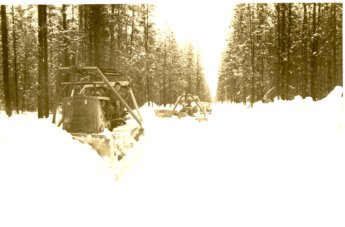 CPS Camp No. 60Civilian Public Service camp 60, Lapine, Oregon. Opening 15 miles of snow after a 21 inch continuous snowfall.Box 2, Folder 1. MCC Photographs, Civilian Public Service, 1941-1947. IX-13-2.2. Mennonite Central Committee Photo Archive
CPS Camp No. 60Civilian Public Service camp 60, Lapine, Oregon. Opening 15 miles of snow after a 21 inch continuous snowfall.Box 2, Folder 1. MCC Photographs, Civilian Public Service, 1941-1947. IX-13-2.2. Mennonite Central Committee Photo Archive -
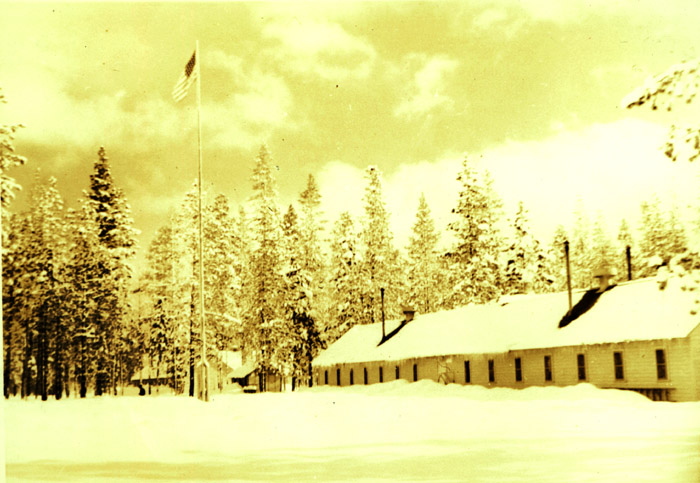 CPS Camp No. 60Civilian Public Service camp #60, Lapine, Oregon; mess hallDigital image at Mennonite Church USA Archives, North Newton, Kansasca. 1943
CPS Camp No. 60Civilian Public Service camp #60, Lapine, Oregon; mess hallDigital image at Mennonite Church USA Archives, North Newton, Kansasca. 1943 -
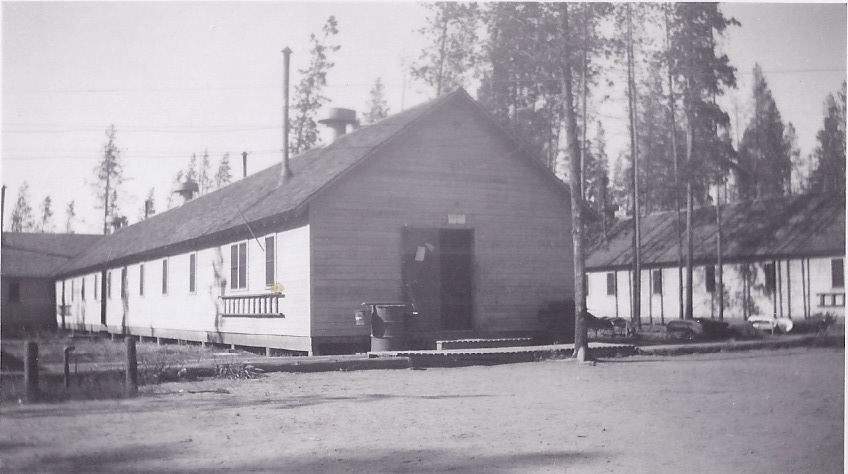 CPS Camp No. 60/No. 128Camp Wickiup dormitoryProvided by David P. Himes, son of Philip J. Himes.
CPS Camp No. 60/No. 128Camp Wickiup dormitoryProvided by David P. Himes, son of Philip J. Himes. -
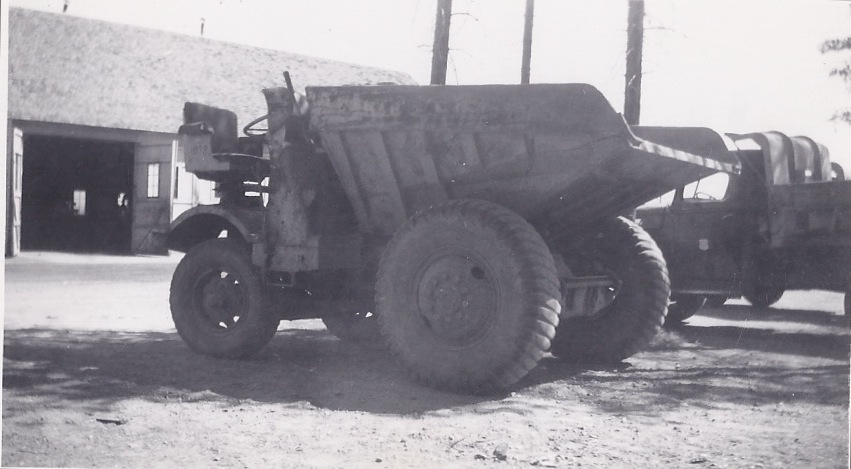 CPS Camp No. 60/No. 128Earth-moving trucks at Camp WickiupProvided by David P. Himes, son of Philip J. Himes.
CPS Camp No. 60/No. 128Earth-moving trucks at Camp WickiupProvided by David P. Himes, son of Philip J. Himes. -
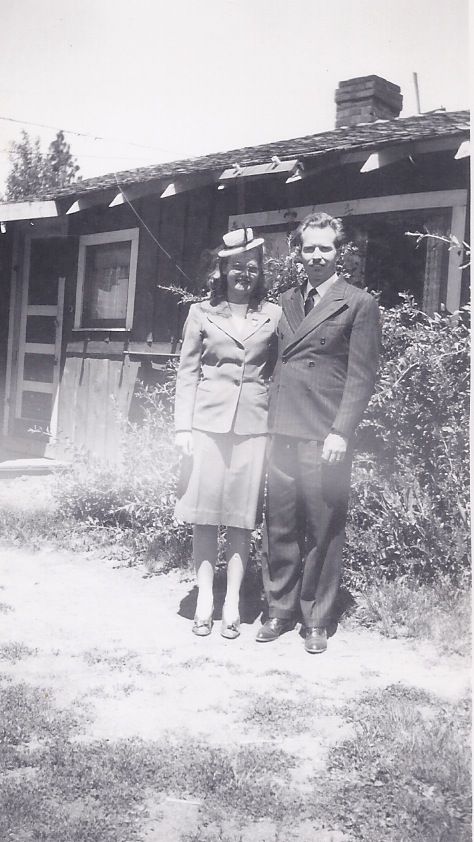 CPS Camp No. 60/No. 128Beatrice B. Himes and Philip J. HimesProvided by David P. Himes, son of Philip J. Himes.
CPS Camp No. 60/No. 128Beatrice B. Himes and Philip J. HimesProvided by David P. Himes, son of Philip J. Himes. -
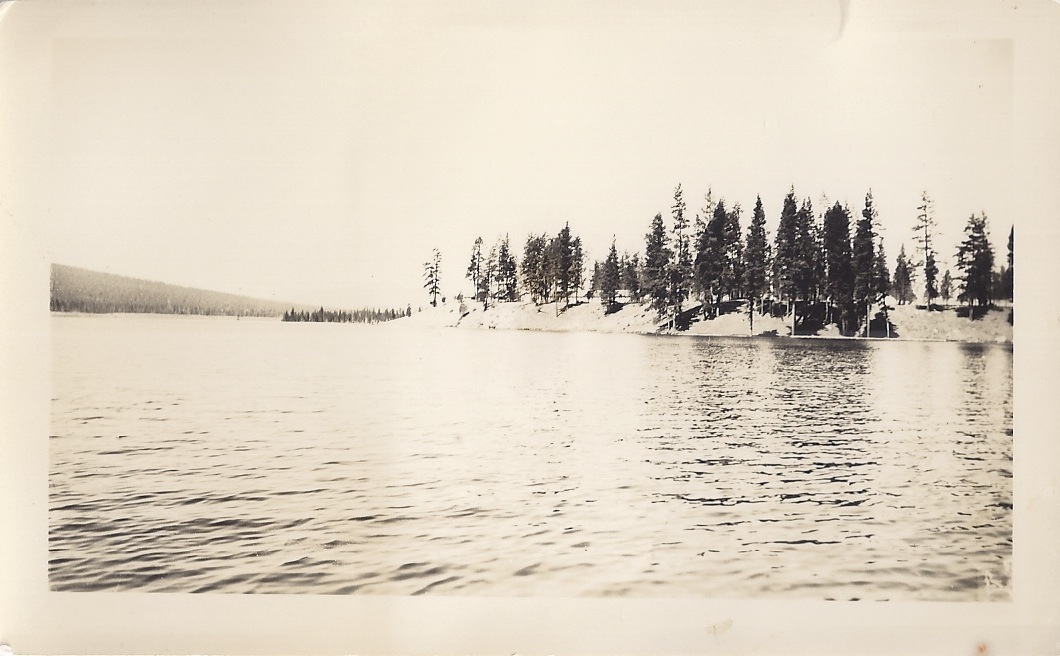 CPS Camp No. 60/No. 128Note on back by Philip J. Himes: "Although you can hardly see it, the camp is in this grove of trees. The camp is surrounded on three sides by the lake. The picture was taken looking up the lake toward the west. The dam is toward you and a little to the left about 2 miles down."Provided by David P. Himes, son of Philip J. Himes.
CPS Camp No. 60/No. 128Note on back by Philip J. Himes: "Although you can hardly see it, the camp is in this grove of trees. The camp is surrounded on three sides by the lake. The picture was taken looking up the lake toward the west. The dam is toward you and a little to the left about 2 miles down."Provided by David P. Himes, son of Philip J. Himes. -
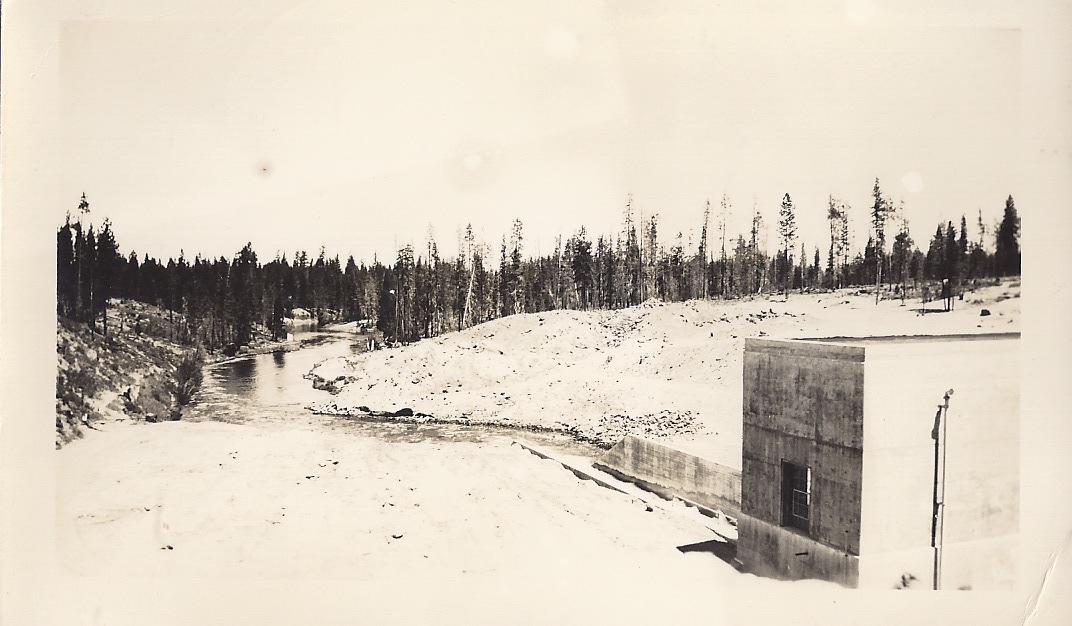 CPS Camp No. 60/No. 128Note on back by Philip J. Himes: "This was taken from the top of the dam looking down stream."Provided by David P. Himes, son of Philip J. Himes.
CPS Camp No. 60/No. 128Note on back by Philip J. Himes: "This was taken from the top of the dam looking down stream."Provided by David P. Himes, son of Philip J. Himes. -
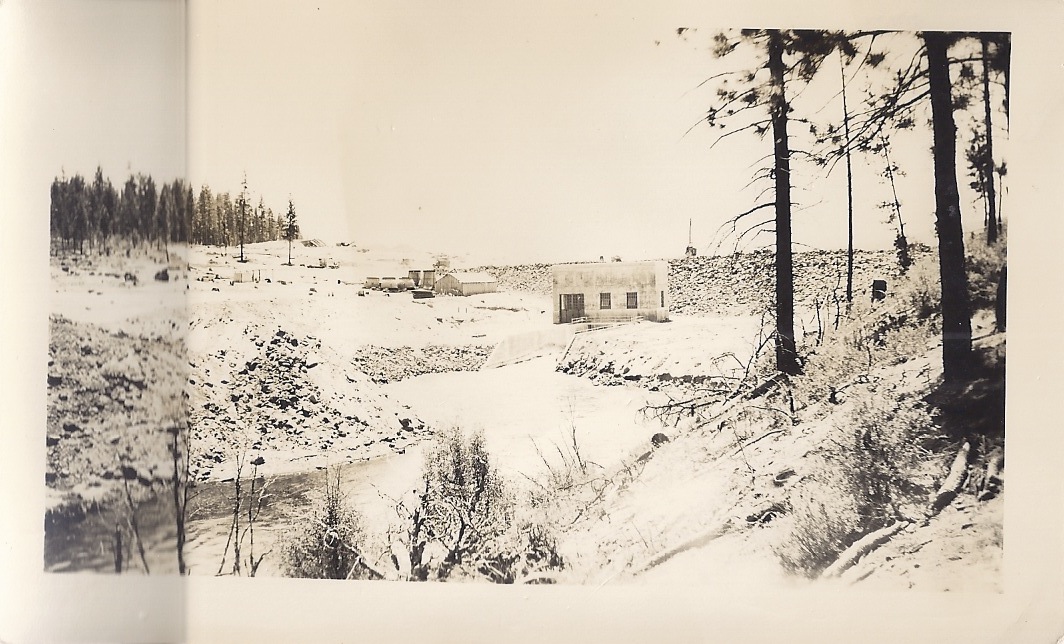 CPS Camp No. 60/No. 128Note on back by Philip J. Himes: "This is the back of the dam last year. The large cement building in the center is the valve house."Provided by David P. Himes, son of Philip J. Himes.
CPS Camp No. 60/No. 128Note on back by Philip J. Himes: "This is the back of the dam last year. The large cement building in the center is the valve house."Provided by David P. Himes, son of Philip J. Himes. -
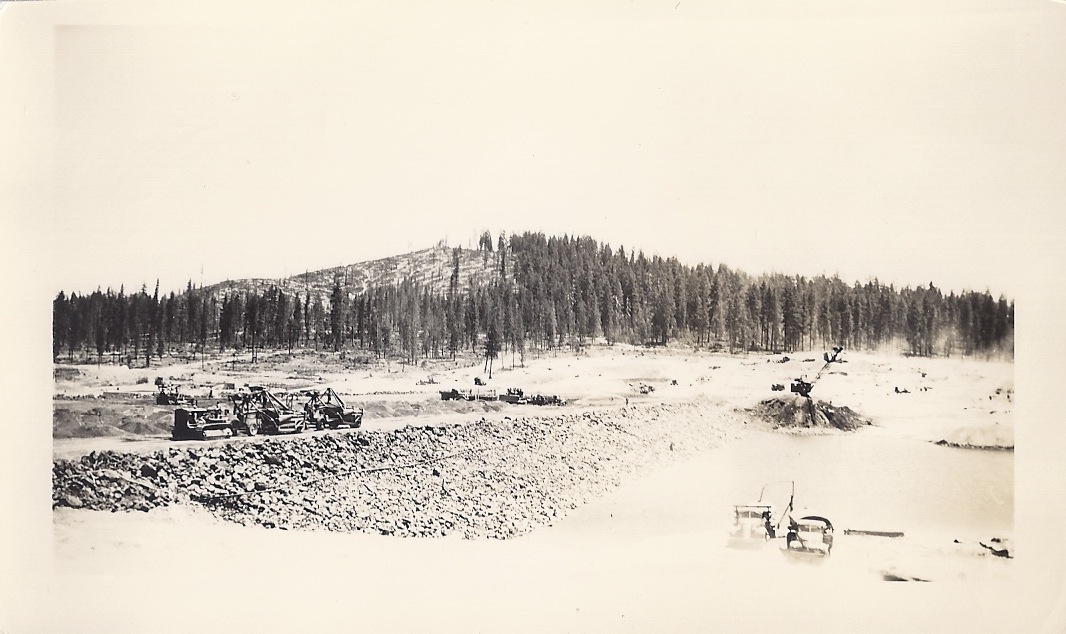 CPS Camp No. 60/No. 128Note on back by Philip J. Himes: "This is the front of the dam, last year. It is about twice that high now."Provided by David P. Himes, son of Philip J. Himes.
CPS Camp No. 60/No. 128Note on back by Philip J. Himes: "This is the front of the dam, last year. It is about twice that high now."Provided by David P. Himes, son of Philip J. Himes.
CPS Camp No. 60, a Bureau of Reclamation base camp near Lapine, Oregon operated by the Mennonite Central Committee (MCC), opened in December 1942. The camp continued for a little more than one year, when in January 1944, Selective Service converted it to a government operated camp, CPS Camp No. 128. The men worked to construct a dam on the upper Deschutes River.
This camp, called Camp Wickiup, was located in a CCC camp built in 1938 near the Deschutes River about eighteen miles west of Lapine. The buildings, arranged in three units, each of which could accommodate two hundred men, were in excellent condition.
In 1938, the CCC began construction of a dam on the upper Deschutes River in the slopes of the Cascade Mountains to provide water for irrigation of fifty thousand fertile acres in central Oregon.
Director: Rufus Franz
Dietician: Beth Eldridge Goering
Matron: Mrs. Rufus M. Franz
Nurse: Mary Duerksen
Seventy-eight men from camps west of the Mississippi and several from Cascade Locks, CPS Camp No. 21 transferred into the camp. Nearly all of the assignees when entering CPS reported affiliation with Mennonite denominational groups.
The men continued dam construction, forty percent complete when they arrived. Only four thousand of the projected eleven thousand acres to be flooded were under water. The first winter, the men cleared the additional area to be flooded. In summer, they both slashed timber and operated construction machinery on the dam.
The crescent length of the immense dam was to be more than three miles with a height of ninety feet above the river bed.
Selective Service took over the camp in January 1944 because they needed the large camp facility to accommodate the numbers of CPS men who desired work in government camps. Some men stayed on to help in the transition from MCC administration to Selective Service administration of this camp.
The camp became CPS Camp No. 128, one of five that in time earned the reputation of being “’dumping grounds’ for misfits and for C.Os charged with insubordination or unsatisfactory work performance”. (Goossen p. 27)
Camp Lapine managed a herd of milk cows producing milk and dairy products for camp use. MCC permitted camps to deduct any production from gardens or livestock from the overall food allowance and this permitted the camp to purchase higher grade foods.
The men published New Horizons from January through December 1943, with a Supplement published in January 1944.
Luke Birky, who entered Lapine from his home in Albany, Oregon, worked as “a tree faller and heavy equipment mechanic.” Reflecting on his experience over fifty years later, he wrote “War fever was at a high pitch so we met some hostility from people in the outside community. We were viewed as cowards and ‘yellow bellies’ or worse. So there were many things we had to think through.” Even though he served more than three years in three camps, he noted the significance of his experience.
We had formal classes in free time and had learning opportunities in our work assignments . . . .We had close companions from different religious, ethnic and social backgrounds and so this was a learning experience too. Dealing with different backgrounds provided fodder for long, productive “bull sessions”. It is true we were “locked in” but this gave us the time and space to resolve differences as those occasions occurred. Camp leadership was excellent. (“Detour . . . Main Highway”: Our CPS Stories pp. 6-8)
Both the director and the men felt their work to be very significant and expressed great disappointment when Selective Service took over the project and operated it as a government run camp (#128). MCC felt that this camp was one of its most successful base camps.
For more information on this camp, see Melvin Gingerich, Service for Peace: A History of Mennonite Civilian Public Service. Akron, PA: Mennonite Central Committee printed by Herald Press, Scottdale, PA 1949, pp. 168-169, 347, 387.
For more information on women COs see by Rachel Waltner Goossen, Women Against the Good War: Conscientious Objection and Gender on the American Home Front, 1941-47. Chapel Hill, NC: The University of North Carolina Press, 1997.
For personal stories of CPS men, see Peace Committee and Seniors for Peace Coordinating Committee of the College Mennonite Church of Goshen, Indiana, “Detour . . . Main Highway”: Our CPS Stories. Nappanee, IN: Evangel Press, 1995, 2000.
Swarthmore College Peace Collection, camp periodicals database.
